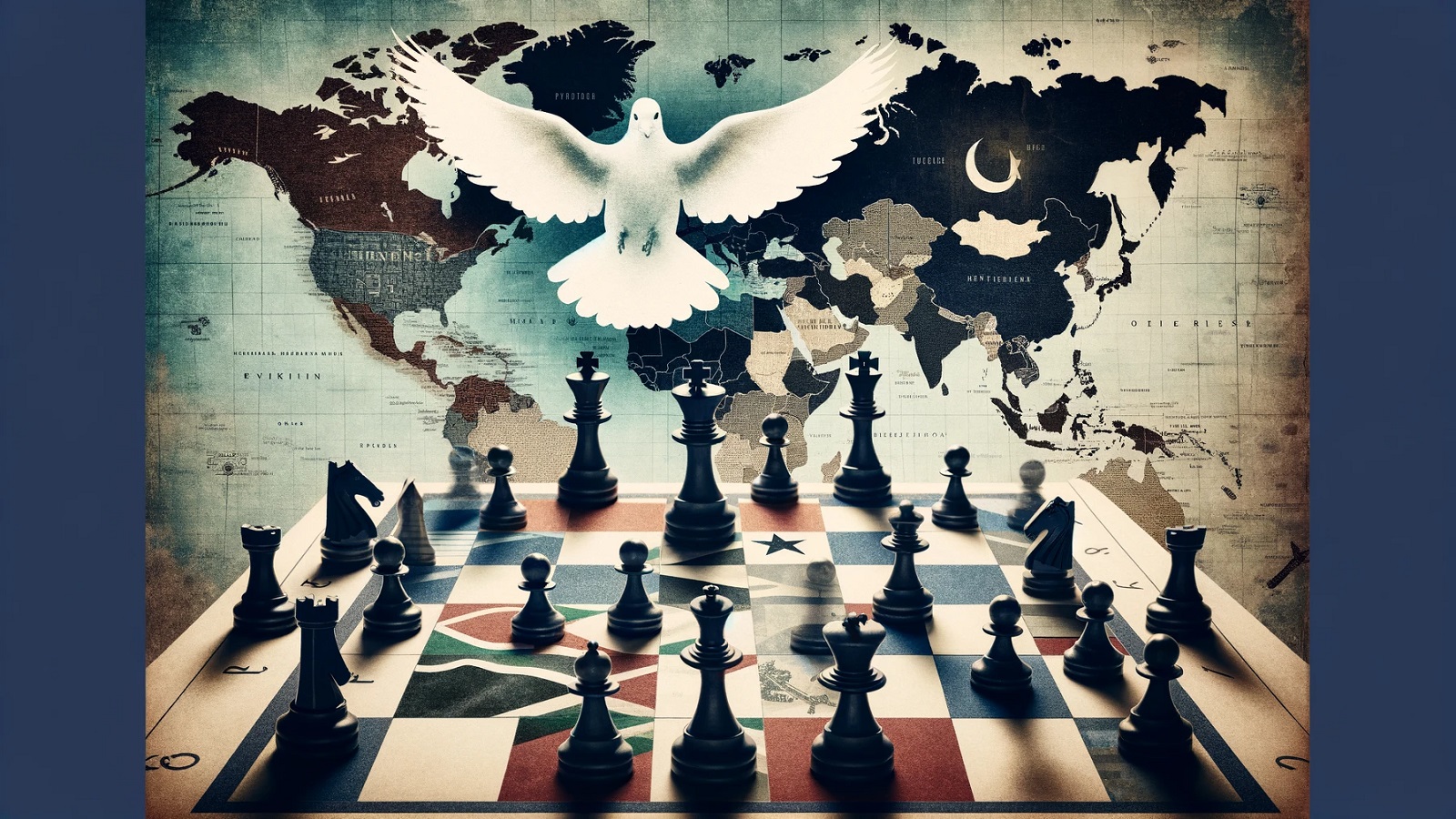Prospects for an American Intervention
Asharq Al-Awsat, London, November 2
In the tumultuous Middle East, the Lebanese armed group Hizbullah has made a bold declaration amid the ongoing violence. In response to Israel’s ground invasion in Gaza, the party’s leader, Hassan Nasrallah, met with Hamas and Islamic Jihad leaders to discuss strategies for “achieving a true victory for the resistance.” This statement, released last Wednesday, firmly asserts Hizbullah’s stance on the conflict. Meanwhile, across the Atlantic, the White House has issued statements of support for Israel and dispatched senior advisers and military resources to the region. However, American officials are now faced with the potential of shouldering a heavier responsibility if Hizbullah follows through on its pledge. This looming possibility adds complexity to an already volatile situation. According to Hizbullah’s deputy leader, Sheikh Naim Qassem, the party has already joined the ongoing conflict and is firmly entrenched in the fighting. However, should Hizbullah follow through on its vow to increase aggression in response to Israel’s ground operation, the situation could rapidly escalate. In such a scenario, the United States may be faced with a delicate predicament, where military action becomes necessary. Experts predict that as the conflict rages on, Hizbullah fighters, equipped with advanced weaponry and extensive training, may escalate their actions, potentially overwhelming the IDF [Israel Defense Forces] and creating the need to simultaneously fend off missile attacks aimed at both urban areas and military installations. This could prompt Washington to confront a challenging choice: how to safeguard the nearly half a million American expats residing in Israel while also addressing the legal grounds for such intervention. Therefore, the pressing question arises: what military obligations will fall upon the US leadership if the conflict further intensifies? The United States is rushing to deploy nearly a dozen air defense systems in the Middle East after withdrawing eight Patriot missile batteries from the region last year. In an effort to bolster security in the region, the THAAD missile system has been sent to the Kingdom of Saudi Arabia, while Patriot missile systems have been deployed to Kuwait, Jordan, Iraq, Saudi Arabia, Qatar, and the United Arab Emirates. The Biden Administration has taken a strong stance against potential attacks from Hizbullah, which has ties to Iran. Public and private messages have been sent urging the group to refrain from launching any large-scale assaults. Meanwhile, the US intelligence community is closely monitoring the situation, assessing the party’s possible actions, and predicting how long its leadership will remain passive on the sidelines. Despite the uncertainty, Hizbullah Secretary-General Hassan Nasrallah has maintained a calm demeanor. To further reinforce its message to Hizbullah and its backers, Iran and Syria, the United States—which has scaled back its presence in the region in recent years—has taken significant steps. This includes the deployment of two aircraft carrier groups, each composed of numerous warships, to the eastern Mediterranean. Additionally, a team of seasoned military strategists, led by a Marine general with extensive experience in urban warfare, has been dispatched to Tel Aviv. Moreover, the Pentagon has put 2,000 Marines on standby for potential deployment and has sent significant amounts of equipment and ammunition to Israel. This move serves as a clear warning that the United States remains ready to defend its allies and uphold its national interests in the volatile Middle East. The catalyst for increased American involvement would be an attack on American assets or interests, as well as the involvement of countries such as China, Russia, or Iran. This was made evident 10 days ago when surface-to-air missiles were launched from the Yemeni coast, posing a threat to five US aircraft. Additionally, Iran-backed Houthi fighters launched 10 cruise missiles aimed at Israel, further heightening tensions. In a separate incident last Tuesday [Oct. 24], rockets were also fired toward Eilat, underscoring the volatile nature of the region. While the increased presence of American ships in the Middle East could serve as a deterrent, it also runs the risk of provoking opposition forces. This is a delicate situation, and the United States must tread carefully to avoid further escalation of the conflict. However, many political experts argue that there is still much more that can and should be done. The United States has a unique opportunity to play a more prominent role in addressing the current threats in the region. This could also be a chance for the country to restore its tarnished international reputation, reclaim its power, and reaffirm its leadership. Moreover, a stronger American presence would serve as a clear warning to regional threat actors—such as Hamas, Hizbullah, Iran, and Syria—that any attack on Israel or its allies will not go unanswered. It would send a strong message that any aggression by these nations would be considered an attack on vital American interests and fundamental American values. —Huda al-Husseini (translated by Asaf Zilberfarb)
Give the gift of hope
We practice what we preach:
accurate, fearless journalism. But we can't do it alone.
- On the ground in Gaza, Syria, Israel, Egypt, Pakistan, and more
- Our program trained more than 100 journalists
- Calling out fake news and reporting real facts
- On the ground in Gaza, Syria, Israel, Egypt, Pakistan, and more
- Our program trained more than 100 journalists
- Calling out fake news and reporting real facts
Join us.
Support The Media Line. Save democracy.



